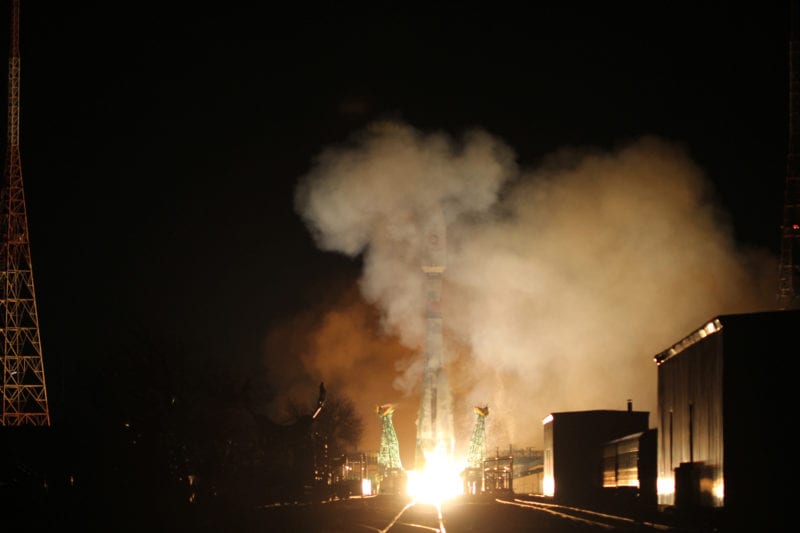Latest News

Arianespace launches 34 satellites for OneWeb on March 21. Photo: Arianespace
Arianespace performed its second OneWeb launch in 2020 on Saturday, March 21, launching 34 satellites into orbit aboard a Soyuz launch vehicle. Arianespace and Starsem carried out Flight ST28 from Baikonur Cosmodrome in Kazakhstan at 10:06 p.m. local time. OneWeb confirmed signal acquisition for all of 34 satellites on March 22.
OneWeb plans for its Low-Earth Orbit (LEO) constellation to provide high speed internet to the world by 2021. This launch brings the total number of satellites in OneWeb’s constellation to 74. Arianespace orbited the constellation‘s first six satellites in February 2019; and the next 34 in February 2020. OneWeb attributed the success of its second, 34-satellite launch in six weeks to its high-volume production factory in Florida.
“In these unprecedented times following the global outbreak of COVID-19, people around the world find themselves trying to continue their lives and work online. We see the need for OneWeb, greater now more than ever before,” OneWeb CEO Adrian Steckel said. “High-quality connectivity is the lifeline to enabling people to work, continue their education, stay up to date on important healthcare information and stay meaningfully connected to one another. The crisis has demonstrated the imperative need for connectivity everywhere and has exposed urgent shortcomings in many organizations’ connectivity capabilities. Our satellite network is poised to fill in many of these critical gaps in the global communications infrastructure.”
Just before the launch on March 20, OneWeb confirmed in a statement to TechCrunch that it had laid off workers in response to the COVID-19 health crisis: “Unfortunately, we think it is inevitable that there will be delays to our launch schedule and satellite manufacturing due to increasing travel restrictions and the disruption of supply chains globally.” In addition, Bloomberg reported on March 19 that OneWeb is considering filing for bankruptcy because the company is low on cash.
Stay connected and get ahead with the leading source of industry intel!
Subscribe Now